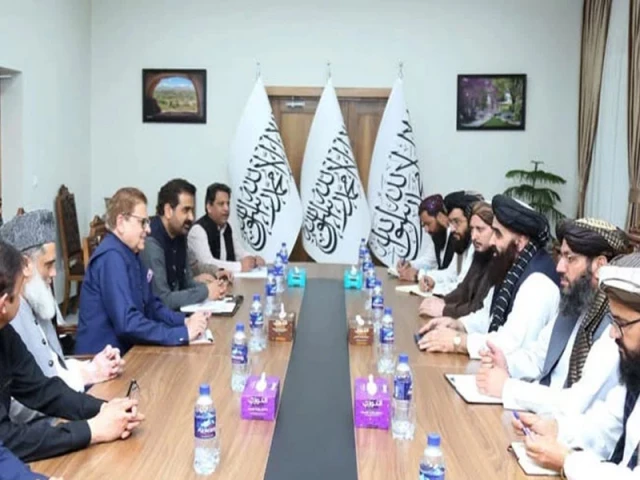Islamabad:
When the Afghan Taliban returned to power in August 2021, Pakistan emerged as his greatest backman when it advocated for a deeper commitment with the new Kabul -gloves and worked tirelessly to seek his international legitimacy.
Pakistan’s efforts stammed from the fact that it enjoyed close and historical ties with the group and was convinced that connections with Afghanistan would only improve.
Islamabad’s biggest concern remained the use of Afghan land of groups such as Tehreek-E-Taliban Pakistan (TTP) and its affiliated companies. Pakistan believed that previous administrations of Karazi and Ghani were likely to be an accomplice in allowing these groups to operate.
However, it had different expectations of the Afghan Taliban, and it therefore persuaded the international community to remain engaged in the temporary setup at first.
Nevertheless, it only took a few months for Pakistan to realize that the Afghan Taliban and TTP were two sides of the same coin. Still, Pakistan did not give up and continued to try to find a way out of the problem.
But the “unprovoked attack” of the Afghan Taliban forces on several Pakistani positions on Saturday night finally brought a paradigm shift in Islamabad’s Afghan politics.
Afghan forces on Saturday opened fire on several places along the border, including Angoor Adda, Bajaur, Kurram, DIR and chitral areas of Khyber-Pakhtunkhwa (KP) and Zhob district in Balochistan Province.
The Pakistani army responded quickly and vigorously, and its retaliatory action resulted in the death of the 200 Taliban and the TTP operates. While the military’s media wing gave operational details of the Afghan attacks and Pakistan’s response, the late evening declaration dropped by the Foreign Office fell a clear tip on Pakistan’s ‘U-turn’ in the Afghan Taliban.
In the Foreign Office’s Reading, Islamabad abandoned from describing Kabul administration as the Afghan temporary government. Instead, it was called the “Taliban regime”, a calculated step to question its legitimacy. What was more narrative in the official distribution was Pakistan’s desire for a representative government in Kabul.
“Pakistan is the desire for a peaceful, stable, friendly, inclusive, regionally connected and prosperous Afghanistan. Pakistan expects the Taliban regime to act responsibly, honor his obligations and play a constructive role in achieving the common goal of eradicating terrorism from its earth.
“We also hope that the Afghan people would one day be released and they would be governed by a genuine representative government,” said it in a clear deviation from previous positions.
Official sources told The Express Pakinomist that the shift was part of Pakistan’s well -calibrated movement, reflecting the current state of games.
Sources said Pakistan would no longer support the Taliban regime unless Kabul -Administration repairs its ways and addresses its genuine security concerns.
Pakistan also set new rules for engagements, which means that further terrorist attacks from the entire border would invoke a quick response inside Afghanistan.



